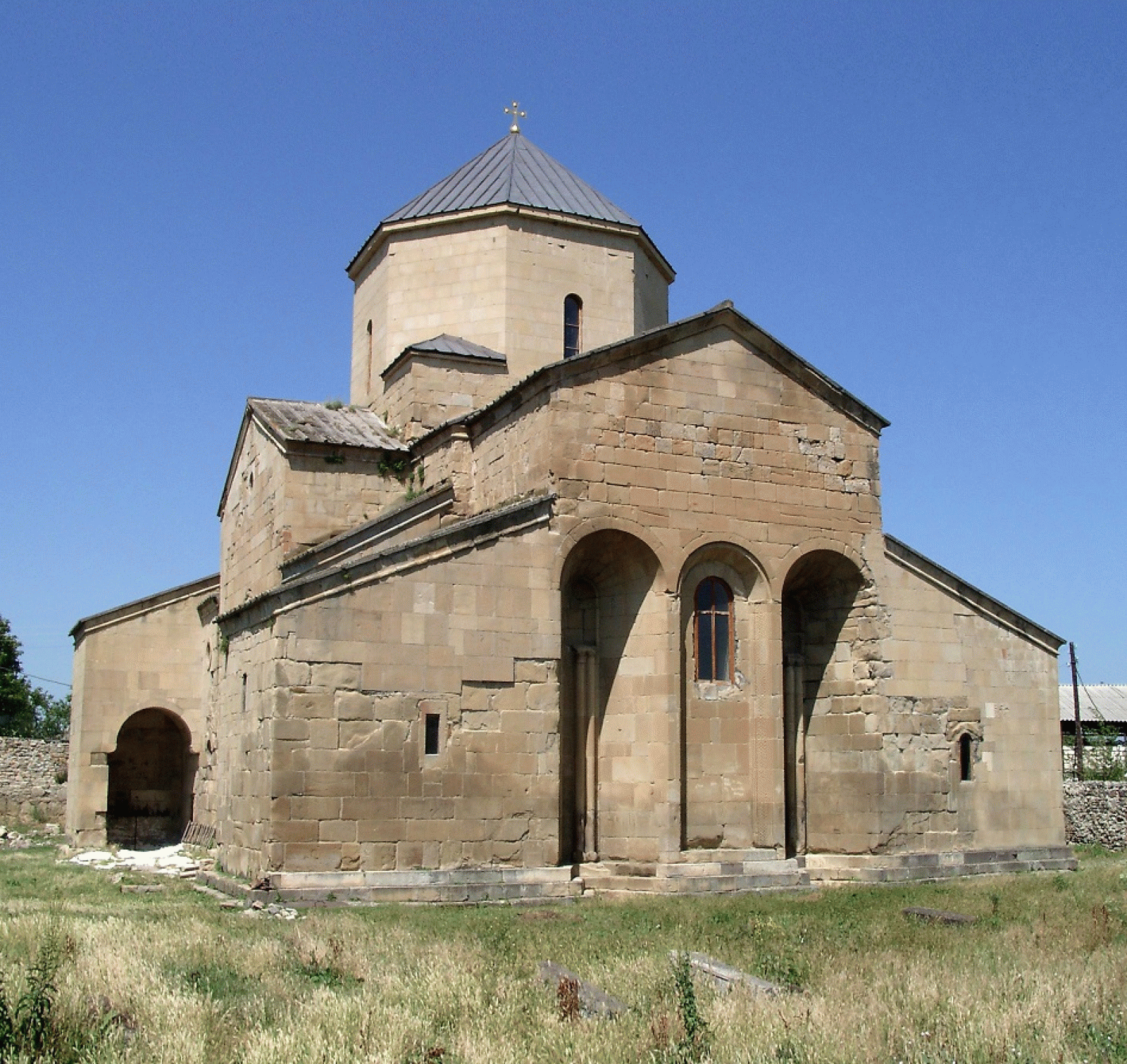Georgia Project Lecture Series
David Khoshtaria:
Church Building in East Georgia from the Fifth to the Seventh Centuries: Masons and Patrons
Aesthetics, Art, and Architecture in the Caucasus Lecture Series
In cooperation with the George Chubinashvili National Research Centre for Georgian Art History and Heritage Preservation

This talk gives a general overview of Georgian architecture from the fifth to the seventh centuries, with a special focus on three key monuments: Bolnisi Cathedral (478–493), Manglisi Cathedral (the late fifth century) and the martyrium church at Tsromi (after 627).
The discussion of Bolnisi Cathedral is particularly important for the understanding of the relation with the Sasanid Empire and its impact on early Georgian architecture. I will examine how this impact is reflected in the sculptural decoration of Bolnisi. Furthermore, Manglisi Cathedral, an important centre of pilgrimage, which seems to be the first link in the chain of Caucasian tetraconch churches with corner rooms, will be reconsidered.
The Church at Tsromi is the focal point of this talk. Written and archaeological evidence suggest that the first martyrium church on the site was built in the late fifth century. The analysis will consider the historical context of the extant church, one of the most important early Medieval buildings in the Caucasus, in order to find out who might have initiated and supported its construction.
The talk thus aims to shed some new insights on the early Medieval architecture of the Caucasus through discussing planning concepts, decoration, and building techniques, as well as the aspects of function, meaning, and patronage.
David Khoshtaria is the head of the Medieval Department of George Chubinashvili National Research Centre and invited professor in the history of architecture at Tbilisi State Academy of Arts. His research interests cover various aspects of the architecture of Medieval Georgia, including building methods and techniques, patronage, and regional schools. He is the author of Churches and Monasteries in Klarjeti (2006, 2nd edition 2009) written as a result of the long exploration of sites and monuments in Turkey, and co-author of Masons in Medieval Georgia (2012, Japanese edition 2020). Since 2010, he has also been studying Modern architecture of Georgia. He is the author of Old Hotels of Tbilisi (2012) and editor of Church Building in Nineteenth-Century Tbilisi: Architecture and Identity (2016) and Urban Planning and Architectural Design in the Cities of Georgia (2019). David Khoshtaria is involved also in cultural heritage management and preservation projects. At present he leads the project for the conservation of the masonry of Jvari Church at Mtskheta.
13 July 2021, 3:00pm
The event takes place online.
To participate please register in advance via Zoom:
https://zoom.us/meeting/register/tJcpduCtqjIjG9NlBsBGIXHObgbn2XlZ0G6H
After registering, you will receive a confirmation email containing information about joining the meeting.
Notice
This event will be documented photographically and/or recorded on video. Please let us know if you do not agree with the Kunsthistorisches Institut in Florenz using images in which you might be recognizable for event documentation and public relation purposes (e.g. social media).


